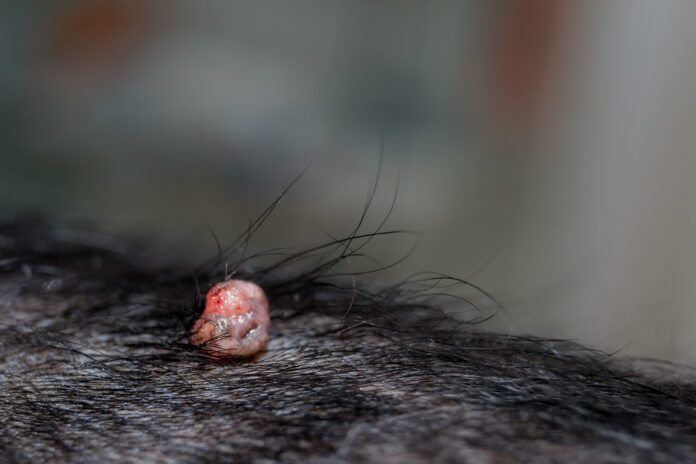The dawn of doggy day care brought an increase in cases of puppy warts. Puppy warts are caused by canine papilloma virus and are extremely contagious. At doggy day care, dogs and puppies are playfully mouthing each other and sharing toys and water bowls, so the virus can spread like wildfire.
The warts typically develop in the mouth, and there can be lots of them. They can be on the tongue, the lips, the roof of the mouth, and the inside the cheeks. They are ugly for sure, but problems only occur if they become infected and cause pain.
Diagnosing Puppy Warts
Puppy warts occur most frequently in dogs 6 months to 2 years old due to young dogs’ less mature immune systems. These warts have a classic appearance, light pink to soft gray in color with a cauliflower-like surface, so they are easily recognizable. The warts will regress and disappear as the dog mounts an immune response against the virus. It can take several weeks to several months for the warts to go away.
If you have a young dog who goes to doggy day care and develops these classic lesions, your veterinarian will likely diagnose puppy warts based simply on history and physical examination. If you have an older dog who does not attend doggy day care, your veterinarian will likely recommend a biopsy to rule out worse things.
Puppy Warts Treatment
Luckily, the puppy papilloma virus is benign (not harmful), and usually no treatment is required other than tincture of time, unless the warts become infected, painful, or interfere with eating. Antibiotics are indicated for infection. The warts can be surgically removed or frozen off if necessary.
The good news is that a dog is unlikely to ever suffer from puppy warts again, thanks to the immune response. The bad news is that your puppy must stay home from doggy day care while suffering from puppy warts, and for two months after they are gone, due to the long incubation period of this virus.





